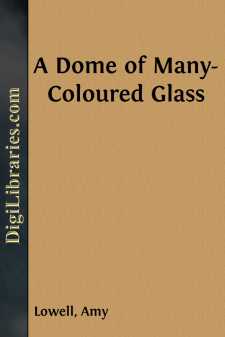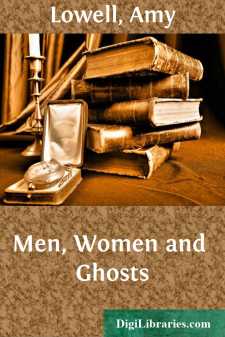Categories
- Antiques & Collectibles 13
- Architecture 36
- Art 48
- Bibles 22
- Biography & Autobiography 813
- Body, Mind & Spirit 142
- Business & Economics 28
- Children's Books 17
- Children's Fiction 14
- Computers 4
- Cooking 94
- Crafts & Hobbies 4
- Drama 346
- Education 46
- Family & Relationships 57
- Fiction 11829
- Games 19
- Gardening 17
- Health & Fitness 34
- History 1377
- House & Home 1
- Humor 147
- Juvenile Fiction 1873
- Juvenile Nonfiction 202
- Language Arts & Disciplines 88
- Law 16
- Literary Collections 686
- Literary Criticism 179
- Mathematics 13
- Medical 41
- Music 40
- Nature 179
- Non-Classifiable 1768
- Performing Arts 7
- Periodicals 1453
- Philosophy 64
- Photography 2
- Poetry 896
- Political Science 203
- Psychology 42
- Reference 154
- Religion 513
- Science 126
- Self-Help 84
- Social Science 81
- Sports & Recreation 34
- Study Aids 3
- Technology & Engineering 59
- Transportation 23
- Travel 463
- True Crime 29
Amy Lowell
Amy Lowell (1874–1925) was an American poet and critic, known for her role in the Imagist movement, which emphasized clarity, precision, and free verse. She published several notable works, including "Sword Blades and Poppy Seed" and "Men, Women and Ghosts." Lowell's poetry often explored themes of love, nature, and the human experience, and she was influenced by both Eastern and Western literary traditions. In 1926, she was posthumously awarded the Pulitzer Prize for her poetry collection "What's O'Clock."
Author's Books:
Sort by:
by:
Amy Lowell
Before the Altar Before the Altar, bowed, he standsWith empty hands;Upon it perfumed offerings burnWreathing with smoke the sacrificial urn.Not one of all these has he given,No flame of his has leapt to HeavenFiresouled, vermilion-hearted,Forked, and darted,Consuming what a few spare penceHave cheaply bought, to fling from henceIn idly-asked petition. His sole conditionLove and poverty.And while the...
more...
by:
Amy Lowell
This is a book of stories. For that reason I have excluded all purely lyrical poems. But the word "stories" has been stretched to its fullest application. It includes both narrative poems, properly so called; tales divided into scenes; and a few pieces of less obvious story-telling import in which one might say that the dramatis personae are air, clouds, trees, houses, streets, and such like...
more...



